Keywords are the currency of online communication. Here’s how to invest wisely and reach your target market.
The path of any action online is either random or purposeful. Random means that people are just clicking around, hoping to land on a funny meme, video or … something. Random is boredom. A purposeful path is when somebody has a goal in mind, and they follow a process to accomplish that goal.
The goal often begins with a “keyword” or a question.
- An example of a keyword would be “picking pears”.
- An example of a question would be “How to know when pears are ripe enough to pick?”
OK, you got me – technically that’s not a question. But that is typical of how people search. And you should always use the language your target market uses.
Your target market’s path
The goal’s path moves from keyword or question to a search. Let’s follow the goal.
That goal then goes to one of the top search results. A search for “picking pears” might serve up over 3,000,000 results. That means over 300,000 pages of results. You don’t want your website to show up only on page 293,441. In fact, it will be mostly lost even on page 2.
Optimizing your page for “picking pears” will boost your chances of being seen and attracting visitors who search for that term.
The goal lands on a page that presumably is optimized for the search, since it would not find any other page in the search results.
But what if it’s not? What if the main headline is “Fruit gathering explained”? That headline doesn’t tell people that they in the right place, because it does not use their language; it does not include the keywords they searched with.
Some people will read on and the goal continues.
But some people will back up and visit another page. The goal continues, but no longer n your path. You’ve been cut out.
It’s important to use the right keyword to attract visitors.
It’s important to use the right keyword to keep visitors.
Like me, you probably know your market pretty well. You know what words they use. You know how to optimize your pages. Or do you?
Things change pretty quickly on the Internet, and the words people use are among the things that change. That’s why I wanted to review a page optimized around the word “screenplay writer”. That’s the anchor keyword, but of course there are variations and combinations that people use for searching, so your page needs to reflect as much of that as possible.
REMEMBER: Always use the language your target market uses. That’s why keywords are the currency of online communication.
But maybe people are not using the term “screenplay writer” as much these days. There are other terms they might now be using more. For instance:
- screenwriter
- scriptwriter
- script writer
- movie script writer
- film script writer
So I opened up Neil Patel’s Ubersuggest, a handy tool to research keywords. What I love about Ubersuggest is how easy it is to enter and start researching.
You just visit the page, and …presto!
I typed in my current anchor term: “screenplay writer”.
Right away, I get a lot of information on the first page. This is just the basic stuff to help place the keyword. This will come in handy when comparing to other keyword options.
The key thing I’m looking for is the search volume. It’s been growing. That’s a good sign. We would have reason to worry if it was declining over the past year.
Below the overview are keyword variation ideas. This will be handy if we decide to keep the anchor keyword. We’ll be able to optimize the page for the most used variations.
You will notice below the top seven ideas there’s a little box reading “View all keyword ideas.” And that leads you to…Holy Cow! 227 suggestions. They can be viewed by scrolling or by exporting as CSV. I like exporting to CSV, because then I can work with them in Excel.
As you scroll or try to download as CSV, you will need to login using your Google account. Piece of cake. At this point you can create a project if you want to save your information for later, or you want to make it available online for another team member.
Back to the keywords, the first and second variation are software-related, so not of interest to someone like me who offers a service. Salary and “how to become” variations are no more of interest, because our target market is not looking to become writers.
But as I scrolled, I saw other variations that I might want to use:
- screenplay writer online
- best screenplay writer
- screenplay writer for hire
And there are more.
Choosing keywords
But that’s not really what I was there for. This can come in handy if I decide to stick with “screenplay writer”. But I wanted first to decide if I should change keywords. So I searched in the plural for “screenplay writers”.
Not much there, so we will consider that a variation of “screenplay writer”. Bad news as I review my page; I have used the plural version much more than the singular version. Something to tweak!
Next, I check some of the other terms, such as “screenwriter” and “scriptwriters”.
Uh-oh. Bad news. People search much more for scriptwriters than for screenwriters. I will have to revisit my plans, perhaps creating alternative content to attract all those scriptwriter searches.
Beyond keywords
While we’re in Ubersuggest, we can also pick up content suggestions around our keyword. That’s based on what has proven most successful on Facebook and Pinterest. I can also take a sneak peek at my top pages or do a site audit. While keywords are central to Ubersuggest, it does serve as an overall SEO tool.
I use the free version – I love free tools! But there are limits on how much you can do for free per day. So if you have a lot to do and you don’t want to keep going back each day to do a bit more, it’s worth upgrading for more access.
VERY IMPORTANT: “Screenplay writer”, “scriptwriter” and “screenwriter” are related terms. They have a semantic connection that any modern algorithms recognize. So it is important to use them all, along with variations (such as plurals) on your page.
The same holds true for other semantically connected words, such as “houses”, “homes” and “real estate”. Or “cook book” and “recipe book”. And, of course, try to use a number of variations of each one.
The key is to give prominence to the main anchor in a few key places, not the least of which would be the page’s URL, the main heading and perhaps some sub-headings and elsewhere in the text. In so doing, you are signaling search engines to send people to your page, and you are signaling visitors that they are in the right place. You see, when you use the language of your target market, keywords are the currency of online communication.
All you have to do next is fill their needs. And that’s what you do best, right?



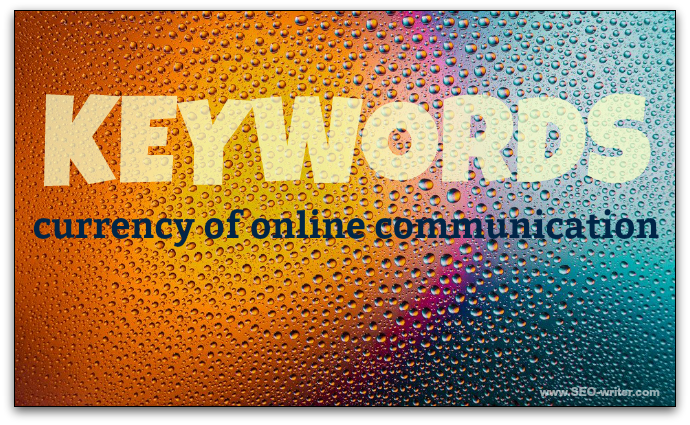
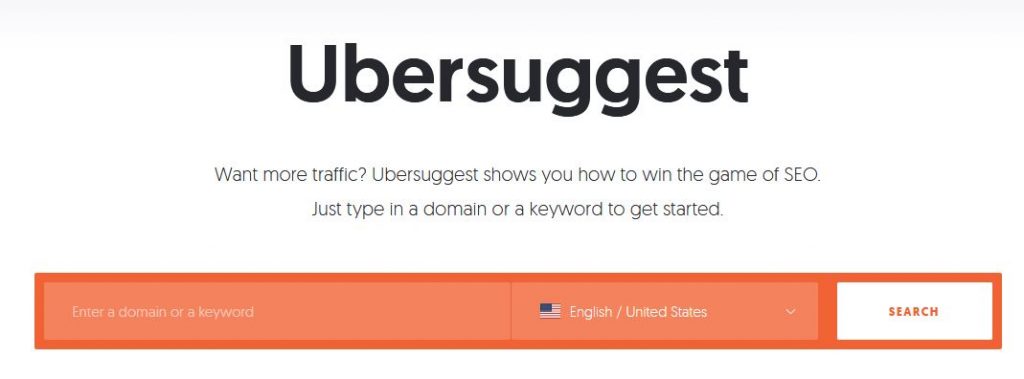
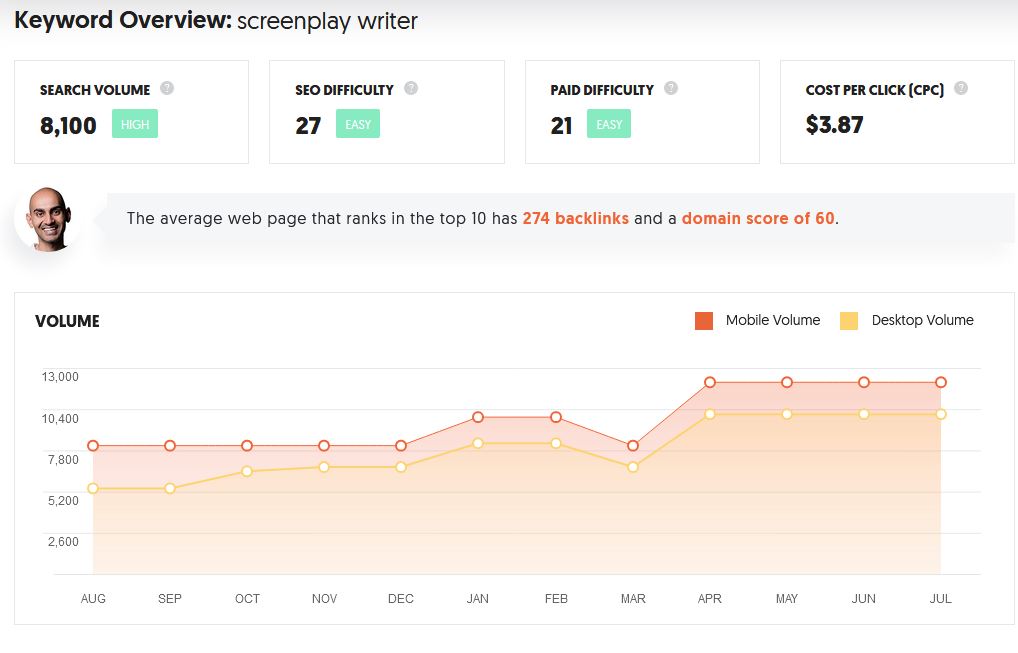
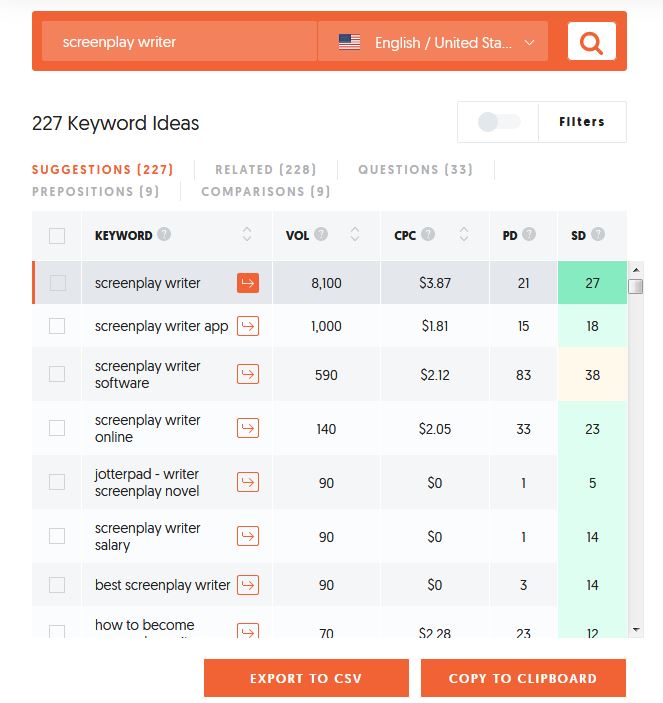

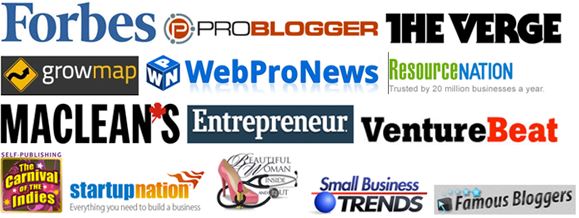
You get back to the heart of it, solve a problem for the customer….once we get their attention of course!
Thanks David, these are great tips. I love using Ubbersuggest by Neil Patel, it’s a great and easy way to obtain all kinds of keyword information. Have you tried the premium version? I have not yet.